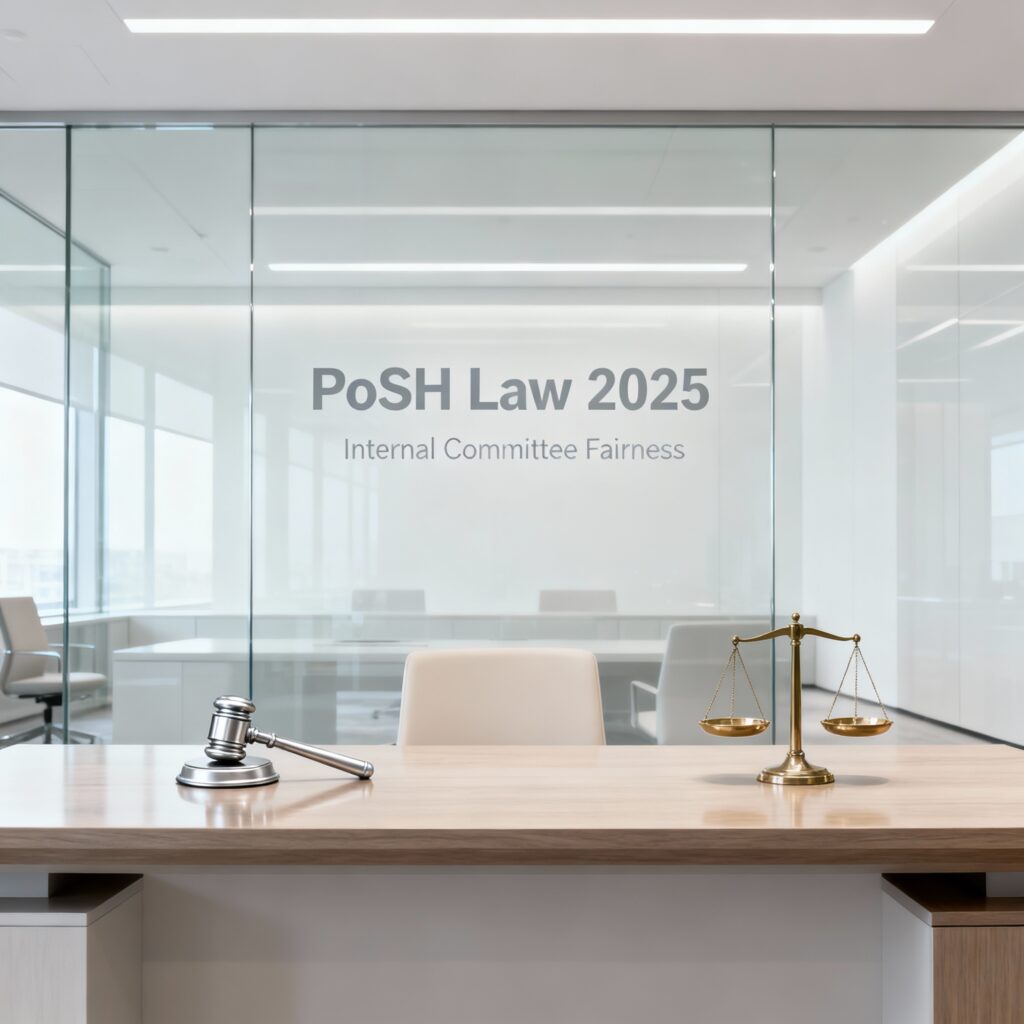The Akasa Air PoSH Judgment: Why Fairness and Natural Justice Must Be the Heartbeat of Every Workplace


PoSH law doesn’t work if it’s just paperwork. The recent Bombay High Court judgment on Akasa Air’s PoSH inquiry shines a much-needed spotlight on something every workplace must remember: Fairness isn’t optional, it’s the foundation.
Internal Committees (ICs) have a tough job. They are the frontline guardians of dignity and safety at work. But to truly earn trust, they must not only follow rules but live the principles of natural justice—with cross-examination playing a key role.
The Story Behind the Judgment
Akasa Air’s senior pilot found himself at the center of a PoSH allegation filed by a trainee. The company’s IC investigated and recommended disciplinary actions. Sounds straightforward, right?
Here’s the twist: The pilot argued that the process was unfair—he wasn’t allowed to cross-examine witnesses or get a personal hearing. The issue went all the way to the Bombay High Court.
The court reminded us that PoSH inquiries are fact-finding missions, not courtroom battles—but here’s the catch: natural justice and the right to cross-examination remain crucial to get to the truth.
Why Natural Justice and Cross-Examination Matter
Cross-examination is often misunderstood as a complicated legal tactic reserved for courts. It’s actually much simpler—it’s about giving the accused a fair chance to question or challenge evidence. Without this, the inquiry risks becoming one-sided, leaving shadows of doubt and dissatisfaction.
The court acknowledged cross-examination isn’t mandatory in every inquiry where facts are admitted or undisputed. But when allegations are serious and facts contested, denying this right can cripple the integrity of the investigation.
Internal Committees must handle this balance wisely:
- When to allow cross-examination in the inquiry.
- Ensuring openness without turning the process adversarial.
- Keeping the focus on dignity and truth.
This procedural fairness builds confidence in the system, making sure that outcomes are respected, no matter who wins or loses.
The Court’s Balanced Judgment: A Guidepost, Not a Loophole
The court didn’t dismiss the importance of fairness. It said that fairness must be flexible and contextual in PoSH inquiries. But it also stressed that statutory remedies like appeals should be used before knocking on court doors.
The message? The system is designed to balance speedy resolutions with rights protections. ICs must get their procedures right—with natural justice principles, including cross-examination, firmly embedded.
What This Means for Workplaces in India, 2025
In 2025, Indian workplaces face growing scrutiny—not just from law, but from their people who demand respect and fairness.
Here’s a quick checklist for leaders and HR teams:
- Invest in thorough IC training on natural justice. Cross-examination isn’t just a process; it’s a safeguard.
- Create transparent, clear inquiry frameworks that everyone understands and trusts.
- Use statutory appeal mechanisms effectively and educate your employees about them.
- Anchor PoSH initiatives in culture, not just compliance. When people see fair processes, they bring their best selves to work.
Not Just Compliance, But Culture—and Courage
PoSH is an opportunity, not a burden. It’s a chance to build workplaces where respect is the norm, and fairness is the air employees breathe.The Akasa Air judgment reminds us: To fly smoothly, we need systems that balance procedural fairness with practical realities. And that begins with treating Internal Committees not as bureaucrats checking boxes, but as trusted guardians who give every voice a fair hearing.